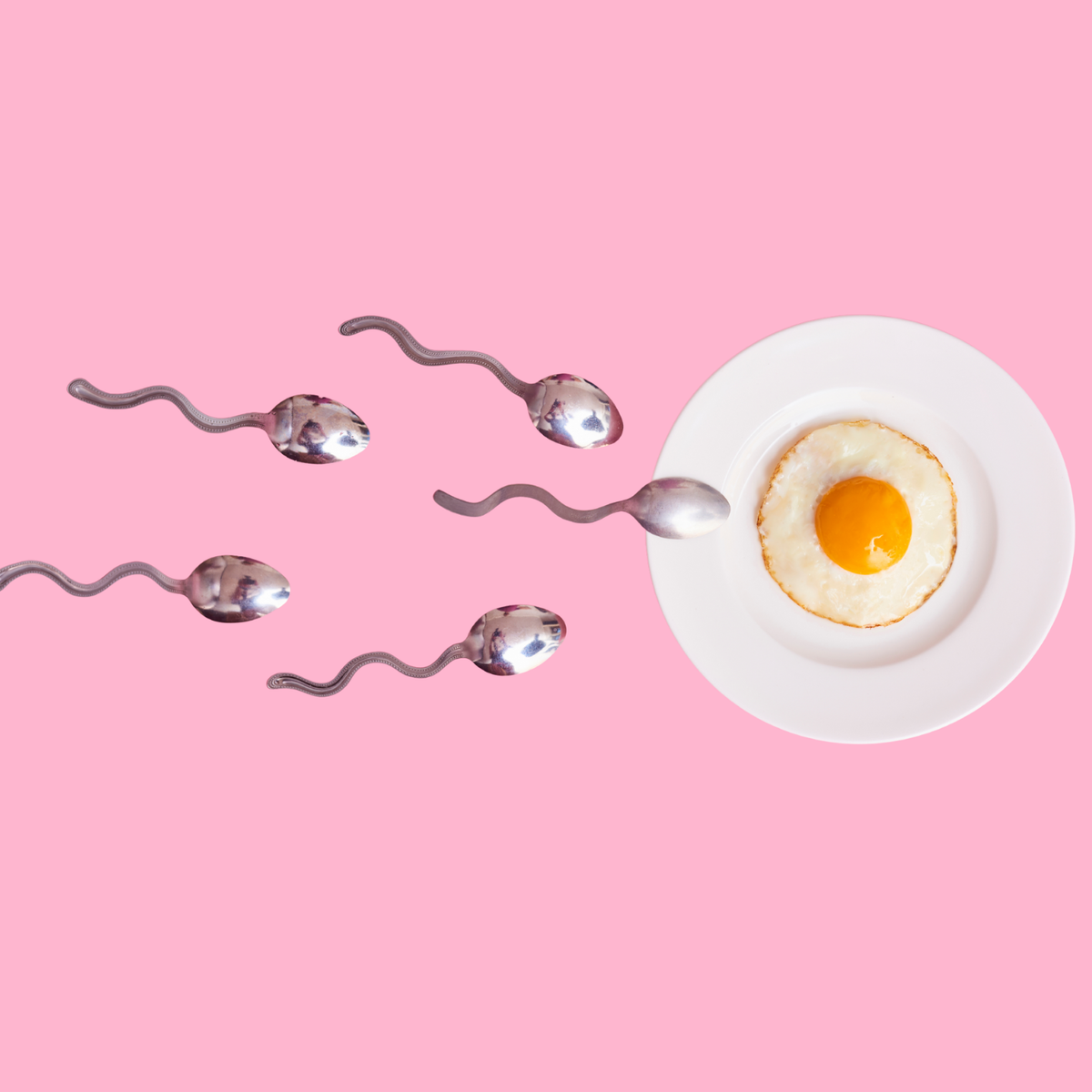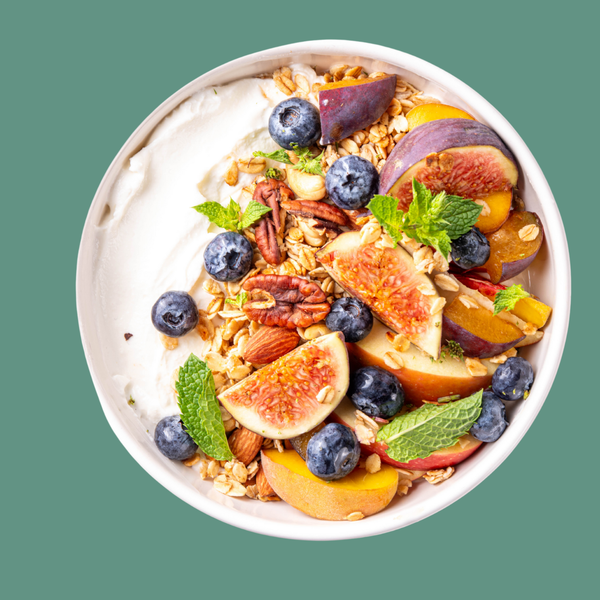Egg Health and PCOS: How Nutrition Supports Your Fertility
Egg health is required for conception. In PCOS, hormone imbalances may affect egg health, but nutrition and lifestyle can help balance hormones, support egg health and improve fertility.

Why Egg Health Matters
A healthy egg cell (ovum) is needed for conception. It carries half of your baby’s genetic blueprint. A healthy egg (and healthy sperm) are needed for fertilization, implantation, and a healthy pregnancy. The egg begins to develop about 90 days before ovulation. In that time the environment you create helps to shape the egg's quality.
People with PCOS, often have an abundance of eggs — a hopeful starting point. The challenge is that hormone imbalances can keep many of these eggs from reaching maturity.
The encouraging news? With balanced nutrition and lifestyle, hormones can align, giving the egg a chance to fully mature and be released through ovulation. Supporting hormone and egg health is one of the most powerful ways to improve fertility with PCOS. Healthy eating also helps to optimize the health of your future baby.
To learn more about how PCOS affects ovulation, hormones, and fertility, see our article: PCOS and Fertility.
(As you read, you’ll notice references to upcoming articles. When they’re published, we’ll link them here — if you’re signed up for Food & Fertility Insights, they’ll land directly in your inbox.)
PCOS and Egg Development
PCOS is linked to hormone imbalances that affect how the eggs mature. While many immature eggs (follicles) start to grow, higher levels of insulin and androgens ("male" hormones) can keep the immature eggs from fully developing and reaching ovulation.
When hormone balance is restored the eggs are more likely to mature. That increases the chance of ovulation, regular cycles, and conception.

Nutrition & Lifestyle Strategies to Support Egg Health
Eat Lots of Colors
Brightly colored fruits and vegetables provide antioxidants that protect egg cells during their 90-day development.
Choose Balanced Meals
Pair complex carbohydrates with protein and healthy fats to steady insulin levels. This supports hormone balance, helping eggs reach maturity. See article: How Blood Sugar Affects PCOS & Fertility. Balanced meals may also help prevent food cravings, which may be more common with PCOS. To learn more about PCOS and Food cravings, see article: PCOS and Food Cravings: How to Manage Them and Improve Fertility.
Choose Healthy Fats
Avocados, nuts, seeds, olive oil, and omega-3-rich fish serve as anti-oxidants and help support egg cell membranes (the outside layer of the cell).
Stay Active
Movement increases blood flow and improves insulin sensitivity — both important for egg development.
A Fertility-Friendly Day of Eating
Each of the following meals combines nutrients that steady blood sugar, nourish egg development, and support fertility.
Breakfast: Greek yogurt parfait with berries, chia seeds, and walnuts.
Lunch: Quinoa and lentil salad with spinach, pumpkin seeds with a lemon, and olive oil dressing.
Snack: Carrots, hummus, boiled egg, and whole grain crackers.
Dinner: Salmon with roasted sweet potatoes, and broccoli.
For more inspiration, see our upcoming meal guides: PCOS-Friendly Breakfasts, Quick Fertility Lunches, and Easy Dinners for Hormone Balance.
Healthy Eggs & Improved Fertility with PCOS
With PCOS, many follicles begin to develop, and with the right environment, those eggs can mature and be released through ovulation. Nourishing your body with balanced meals can help steady blood sugar, support egg health and improve fertility.





